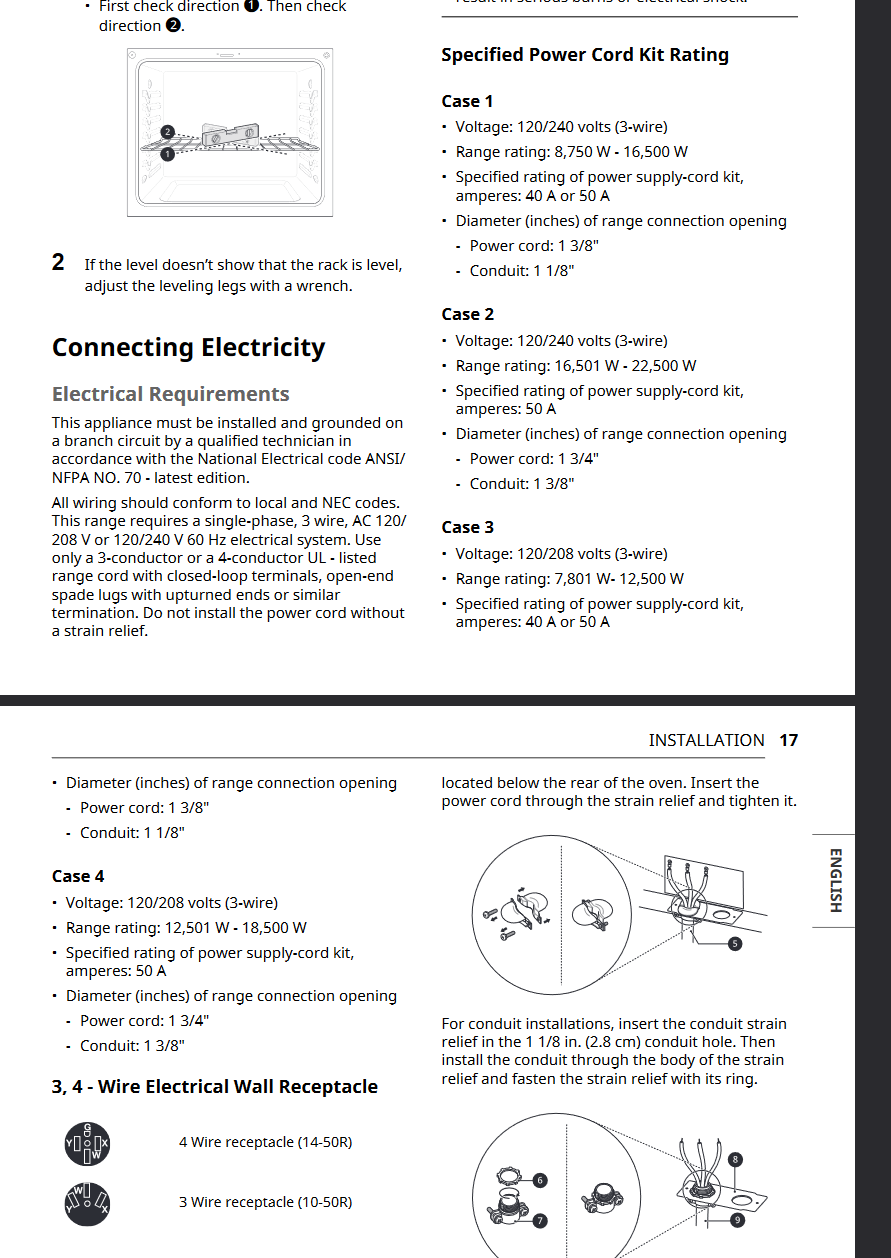Trying to be as succinct as possible:
- I ordered an induction oven that is rated for 50A and NEMA-50R according to the manual.
- I called an electrician and he recommended we install 60A breaker and NEMA-60R receptacle because the oven is pulling nearly 12kW (his logic)
- Therefore he wants to change the cord the oven comes with from 50R to 60R NEMA.
Is this dangerous? They've already done the following:
- Installed the breaker (60A)
- Installed the wire in the wall (6 guage fit for 60A)
- Installed the outlet (NEMA-60R)
The oven arrives tomorrow and the electrician is coming to do this last step of changing the cord. But I am having second thoughts (as a non expert non electrician) as my appliance delivery guys were very confused by it.
I've already spent the money and the installation is 90% done so there's no coming back financially, so at this point I need to make a choice. At this point I could tell the electrician to come back, swap out the outlet to NEMA-50R, swap the breaker from 60A to 50A, and not mess with the oven cord. Or I could go with their plan and let them change the oven cord.
My priority is safety at this point. Let me know.

